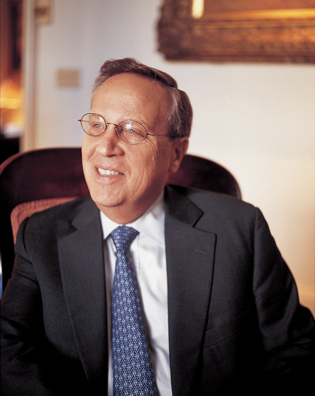 loading
loading
Q&A: Rick LevinA promise to keep Mark OstowView full image
Y: Yale has made an extraordinary commitment—the New Haven Promise—for scholarships to New Haven public school graduates who go to college in state. How much, and who qualifies? L: Students need a 90 percent attendance rate and a B average. They must do some community service and have a good disciplinary record. The size of the benefit depends on how many years a student has been in the New Haven school system. The program covers tuition at any in-state public college or university, up to the level of tuition at the University of Connecticut. If you go to a private school such as Yale, Wesleyan, Trinity, or Connecticut College your benefit is only $2,500, but those schools give need-based scholarships. The Promise grant is given regardless of need. But the great majority of students in New Haven public schools would qualify for financial aid at a place like Yale. Y: What’s your purpose in funding this program? L: The idea is to create a powerful incentive for New Haven schoolchildren to attend and graduate from college. A person’s prospects in life are dramatically increased by college attendance. The statistical evidence shows that students see approximately a 10 percent increase in lifetime income for every year of college, and the four-year degree is worth about a 50 percent premium. We also know that if you start life in the bottom 20 percent of income distribution, your chances of moving up the ladder are dramatically increased by college attendance. College really matters for escaping poverty. The program has several benefits for New Haven. First, strengthening our schools is the last piece of the multiyear, multifaceted effort that Yale and the mayor have made in partnership over the past 17 years, and the Promise program is a key piece of the major school reform that the mayor is now undertaking. Second, having a better-educated workforce will help economic development in the city. Over time, we hope to retain a significant fraction of the beneficiaries and employ them in good jobs created by New Haven’s growing knowledge-based economy. Third, the program could help to attract back to the city, or keep in the city, families who otherwise would be in the suburbs because of the schools. The mayor got the idea from the success of the experiment in Kalamazoo, Michigan, which was funded by corporations and foundations in Kalamazoo. It has been very successful in encouraging people to stay in the public school system. Pittsburgh has adopted a similar model. Y: Yale is undergoing layoffs and budget cuts. Can you afford the New Haven Promise? L: The cost phases in over seven years. Next year, only the graduating seniors will be supported, and since they didn’t have the program in place as an incentive, they’re only going to get 25 percent of the normal benefit. The second class will get 50 percent, the third 75 percent. Seven years from now, when four classes are in college with the full benefit, the costs will reach what we estimate to be the full $4 million a year. Next year the cost will be only $250,000. So we believe this is a commitment we can absorb in the near term even in the context of the budget cuts we’ve had to make. Y: There are programs at Yale that have made cuts and could use a quarter-million dollars. When you weigh all these needs, what makes you feel this program will benefit not just New Haven, but Yale? L: I believed from the day I took office that a stronger New Haven benefits Yale. The evidence is undeniable that now that New Haven is a thriving city, with a stronger downtown and more stable neighborhoods—Yale is stronger. We are a more competitive institution. We are a more attractive place for students to come and a more attractive place for faculty to live. Y: The mayor announced the concept for this program long before he had funding. Was he putting pressure on Yale to commit? L: The mayor and I have been talking about the program for nearly two years, and it has been an amicable process all the way. But it wasn’t the right time to roll the program out until New Haven’s school reform effort was fully in place. The breakthrough occurred with the contract the mayor was able to negotiate with the American Federation of Teachers. Randi Weingarten and the American Federation of Teachers deserve great credit for their willingness to experiment with school reform in New Haven. The essence of the new contract is that each year, the mayor and school board may choose to reconstitute poorly performing schools—those testing in the bottom 20 percent. They can hire new principals and new faculty subject to more flexible work rules. Although the contract does not allow pay to be linked to performance, teachers who perform poorly can be terminated or transferred to different assignments. A dysfunctional school can become a high-morale school right away. And over a period of years, by cycling this process through the whole system, we will end up with much better schools. Y: New Haven’s media office put out quite an enthusiastic announcement—calling the Promise the most important news ever for the city. Would you agree? L: [Laughs.] It depends on your historical perspective, I suppose. It might have been slightly more important that Yale moved here from Saybrook [in 1716]. But the combination of the scholarship program and serious school reform is really important.
The comment period has expired.
|
|